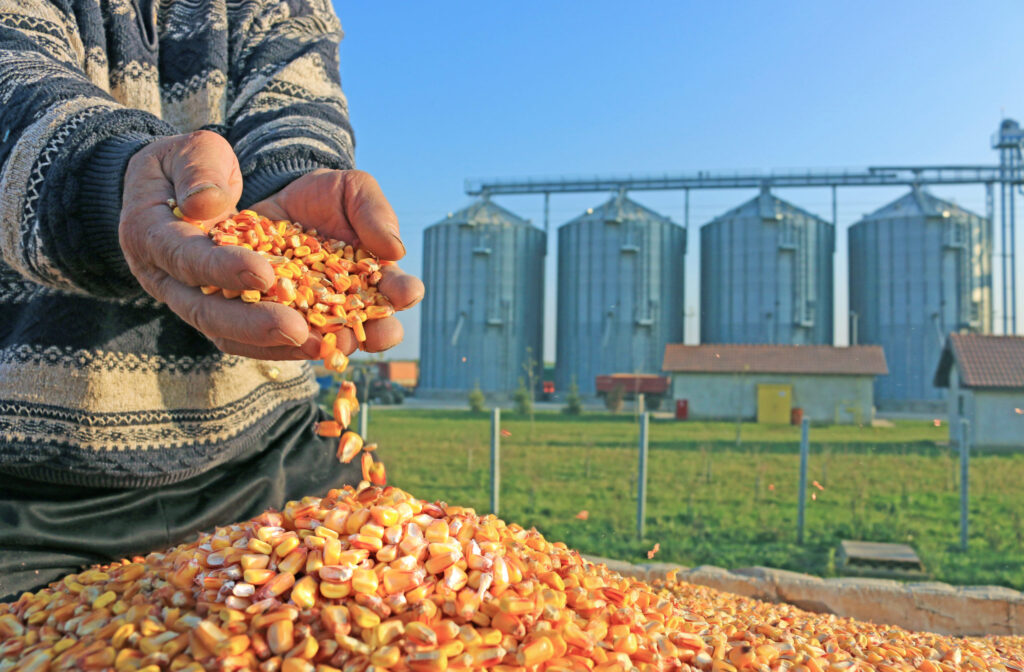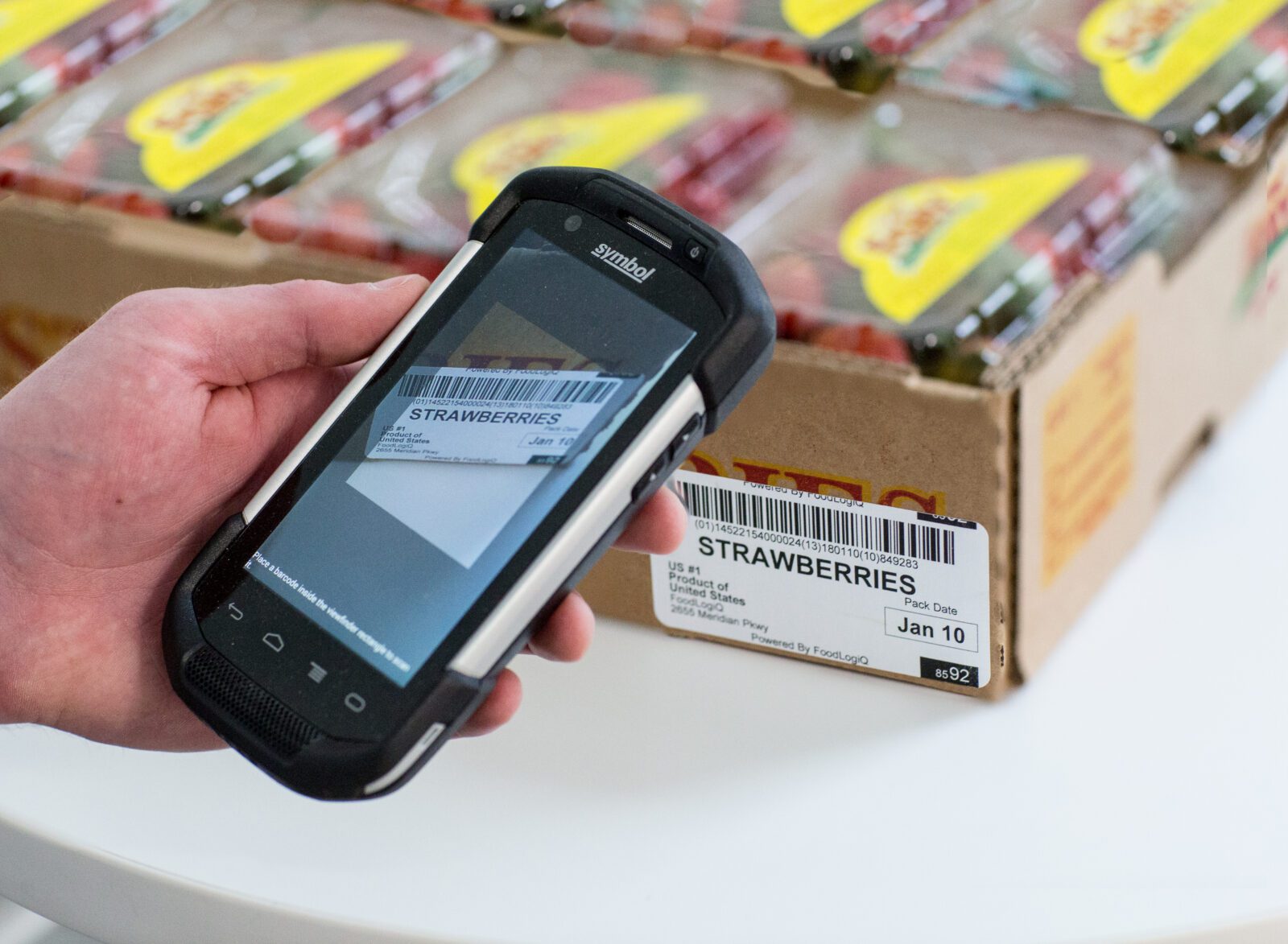What is Food Safety Traceability Software and Why is it Important?
Food safety traceability software is a digital tool that tracks and records food products as they move from production to consumption. This technology creates a detailed online record of food items, capturing important information at every step of the supply chain.
The importance of these systems goes beyond just keeping records:
Food safety traceability software delivers substantial advantages to businesses through automated processes and comprehensive data management capabilities.
1. Consumer Health Protection
- Quickly identifying contaminated products
- Rapidly recalling products when safety issues occur
- Tracking allergens for vulnerable consumers
- Preventing outbreaks of foodborne illnesses

2. Regulatory Compliance
- Automating documentation for food safety regulations
- Monitoring compliance requirements in real-time
- Creating digital audit trails for inspections
- Verifying adherence to safety standards
3. Economic Impact Protection
- Reducing waste through accurate inventory management
- Minimising financial losses during recall events
- Protecting brand reputation through proactive safety measures
- Optimising supply chain efficiency
In today’s complex food supply networks, traceability software acts as your digital guardian. You gain immediate access to critical information about your food products – from harvest dates and processing conditions to storage temperatures and transportation routes.
The implementation of robust traceability systems helps you maintain food safety standards while protecting your business interests. When safety concerns arise, you can quickly isolate affected products and execute targeted recalls, saving time, resources, and potentially lives.
These systems are especially valuable in modern food service environments where you need to manage multiple suppliers, complex ingredients lists, and varying regulatory requirements. With food safety traceability software, you transform challenging compliance tasks into streamlined, automated processes.
Read more on: HACCP Audits and Food Safety Inspections: What You Need to Know
How Does Food Safety Traceability Software Benefit Businesses?
Cost and Time Efficiency
- Automated record-keeping eliminates manual paperwork
- Real-time tracking reduces labour costs
- Quick identification of potential issues prevents costly recalls
- Streamlined inventory management minimises waste
- Reduced risk of human error in documentation
Enhanced Operational Management
- Live monitoring of food safety parameters
- Instant alerts for temperature variations
- Data-driven insights for process improvement
- Centralised dashboard for multi-location management
- Customisable reporting tools for business analysis
Strengthened Compliance Support
- Digital audit trails for regulatory requirements
- Automated documentation for food safety standards
- Instant access to historical records
- Built-in compliance checklists
- Simplified certification processes

The implementation of traceability software transforms business operations through its integrated approach. Companies using these systems report significant reductions in administrative workload, with some achieving up to 75% time savings in documentation processes.
The software’s real-time monitoring capabilities enable swift responses to potential issues. For instance, temperature monitoring sensors can alert staff immediately if storage conditions deviate from safe ranges, preventing stock losses and maintaining product quality. Read more about quality on https://ayubmed.edu.pk/qec-home/
Digital audit trails create a robust framework for compliance management. When auditors request documentation, businesses can generate comprehensive reports within minutes rather than spending hours collecting paper records. This digital transformation streamlines regulatory inspections and helps maintain certifications with minimal administrative burden.
What are the Key Features and Technologies Behind Effective Food Safety Traceability Software?
Modern food safety traceability software combines advanced technologies to create robust tracking systems that protect both businesses and consumers. Here’s a deep dive into the essential features that power these solutions:
1. Lot-Level Tracking
- Unique identification codes for each product batch
- Real-time monitoring of product location and status
- Instant recall capabilities for specific batches
- Detailed history of handling and storage conditions
2. Allergen Management System
- Automated alerts for potential cross-contamination
- Ingredient verification at each production stage
- Clear labelling requirements for packaging
- Risk assessment tools for allergen control
3. Blockchain Integration
- Immutable record-keeping across supply chains
- Decentralised data storage for enhanced security
- Smart contracts for automated compliance
- Real-time verification of product authenticity
4. QR Code Implementation
- Instant access to product information
- Mobile-friendly tracking interface
- Supply chain visibility for stakeholders
- Consumer engagement through scannable packaging
These technologies work together to create a comprehensive tracking system. Lot-level tracking pinpoints issues quickly, while allergen management systems protect sensitive consumers. Blockchain technology ensures data integrity, QR codes bridge the information gap between producers and consumers.
Advanced systems like Squizify integrate these features into a user-friendly platform, allowing businesses to maintain detailed records without complex technical knowledge. The combination of these technologies creates a transparent, secure, and efficient food safety ecosystem that meets modern regulatory requirements.
How is Food Safety Traceability Software Applied Across Different Industries?
Food safety traceability software adapts to meet specific industry requirements, delivering targeted solutions across diverse sectors.
1. Hospitality Industry Applications
- Hotels use traceability systems to monitor food storage temperatures and track ingredient freshness
- Restaurants implement real-time alerts for temperature breaches in refrigeration units
- Catering services track batch numbers and expiration dates for bulk food preparations
- Digital checklists ensure HACCP compliance throughout food handling processes
2. Healthcare Sector Implementation
- Hospitals maintain precise dietary requirements for patient meals
- Aged care facilities track nutritional content and allergen information
- Healthcare kitchens document sanitisation procedures and temperature controls
- Automated alerts help prevent cross-contamination in food preparation areas
3. Supermarket Solutions
- Real-time inventory tracking reduces food waste
- Automated stock rotation systems ensure FIFO (First In, First Out) compliance
- Temperature monitoring for refrigerated and frozen products
- Quick identification and removal of recalled items
- Digital records of supplier certifications and delivery conditions
Each industry benefits from customised features:
- Hospitality: Focuses on rapid service while maintaining food safety standards
- Healthcare: Prioritises dietary restrictions and contamination prevention
- Supermarkets: Emphasises inventory management and swift recall responses
These industry-specific applications demonstrate the versatility of food safety traceability software in maintaining compliance and protecting consumer health across different sectors. Click here to find more about versatility.
What Challenges Do Businesses Face When Implementing Food Safety Traceability Software?
The implementation of food safety traceability software presents businesses with specific technical and operational hurdles that require careful consideration and strategic planning.
1. Infrastructure Limitations
Businesses may face various infrastructure limitations when implementing food safety traceability software, including:
- Outdated computer systems that struggle to handle modern traceability software
- Limited internet connectivity in remote production facilities
- Legacy equipment that lacks digital integration capabilities
- Insufficient data storage capacity for extensive tracking records
2. Staff Training and Adoption
Resistance to new digital systems from experienced staff can pose a challenge during implementation. Additionally, the time investment needed for comprehensive training may impact initial productivity. Ongoing technical support and guidance will also be necessary to ensure smooth adoption.
3. Cost Considerations
Implementing food safety traceability software involves various costs that businesses need to consider, such as:
- Initial investment in compatible hardware
- Software licensing and maintenance fees
- Training and implementation expenses
- Potential production slowdowns during transition
4. Data Management Challenges
Integrating the traceability software with existing business systems can be complex. Moreover, businesses may face difficulties in standardising data across different suppliers and ensuring the security of sensitive information. Backup and recovery protocols must also be established to prevent data loss.
5. Regulatory Compliance Gaps
Different regions have varying requirements when it comes to food safety regulations. This can create challenges for businesses operating in multiple locations. Complex documentation needs and regular updates to meet changing regulations may also pose difficulties. Additionally, audit preparation and compliance verification processes must be in place.
These challenges highlight the need for businesses to conduct thorough assessments before implementing traceability software. Companies like Squizify address these issues through customisable solutions, dedicated support teams, and flexible implementation strategies that adapt to existing infrastructure limitations.
The success of implementation often depends on choosing a software provider that offers comprehensive onboarding support and understands industry-specific challenges. Regular system updates, reliable technical support, and scalable solutions help businesses navigate these obstacles effectively.
How Can Food Safety Traceability Software Enhance Consumer Trust?
Modern consumers demand transparency in their food choices. Food safety traceability software creates a direct bridge between producers and consumers through transparent labeling strategies.
Digital Product Stories
Each food item carries a unique digital identity through QR codes or barcodes. Consumers can scan these codes to access:
- Complete product journey from source to shelf
- Detailed ingredient information
- Allergen declarations
- Nutritional values
- Sustainability certifications
- Production methods
Real-Time Information Access
Traceability software like Squizify enables instant access to product data. Consumers can verify:
- Production dates
- Storage conditions
- Transportation routes
- Quality certifications
- Safety compliance records
Building Trust Through Transparency
The implementation of food traceability software creates a culture of accountability. Brands that share detailed product information demonstrate their commitment to:
- Food safety standards
- Ethical sourcing practices
- Quality control measures
- Environmental responsibility
This level of transparency helps consumers make informed purchasing decisions based on their personal preferences, dietary requirements, and values. Companies that embrace transparent labeling through traceability software establish stronger connections with their customer base.
The digital trail created by food safety traceability software serves as a trust-building mechanism. When consumers can trace their food’s journey and access detailed product information, they develop confidence in both the product and the brand.
Conclusion
Food safety traceability software is a crucial tool in modern food industry operations. The ability to track products from farm to fork creates a strong safety net for businesses and consumers alike.
This technology provides:
- Real-time monitoring capabilities
- Enhanced regulatory compliance
- Streamlined recall processes
- Improved consumer confidence
The implementation of systems like Squizify transforms food safety management into a precise, data-driven operation. These solutions protect both business interests and public health through comprehensive tracking and monitoring features.
The future of food safety lies in digital transformation. Businesses that embrace traceability software position themselves at the forefront of industry innovation and consumer trust. The investment in such technology isn’t just about meeting current standards—it’s about building a foundation for sustainable, safe food practices.
Ready to enhance your food safety management? Book a demo with Squizify today and discover how our traceability solutions can safeguard your operations and boost consumer confidence.

